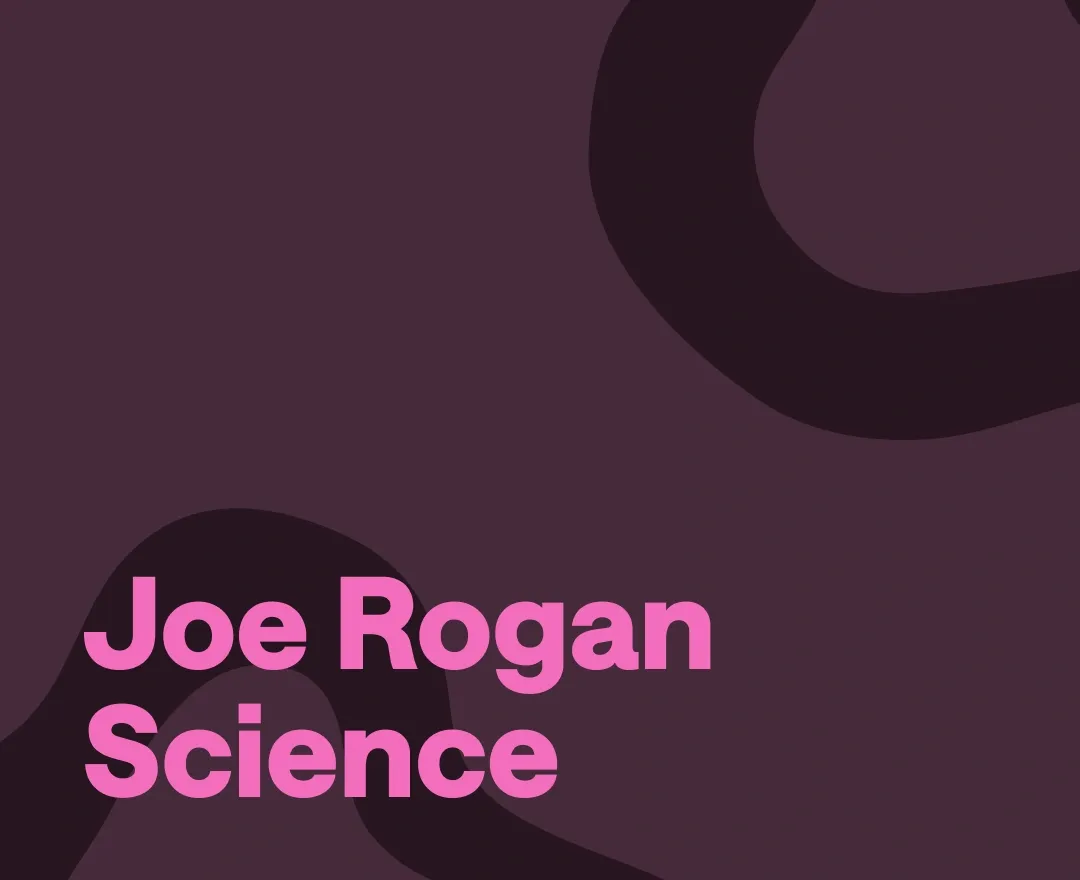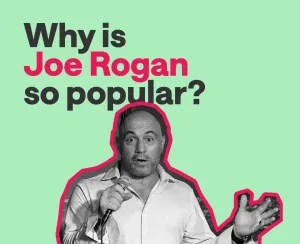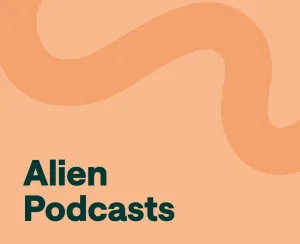Joe has had some fascinating conversations over the years with some of the world's most interesting and acclaimed scientists. We get into some of the best episodes here covering everything from the mysteries of the universe to mind-altering drugs.
1) Michio Kaku (JRE 1980)
In this episode, Dr. Michio Kaku, a renowned theoretical physicist, science communicator, and author, dives deep into the game-changing potential of quantum computing. Michio Kaku explains how quantum computers, by harnessing the power of atoms and parallel universes, could soon vastly outperform today's supercomputers. This quantum supremacy, he argues, will revolutionize medicine, break any code, and even pave the way for humans to merge with machines or create new universes.
Along the way, they touch on AI, alien life, the origins of consciousness, and the ultimate fate of humanity.
2) Ray Kurzweil (JRE 2117)
Futurist and AI pioneer Ray Kurzweil joins the JRE show to discuss the rapid advancement of artificial intelligence and its potential impact on humanity.
Kurzweil shares his insights on how AI could revolutionize fields like medicine, extend human lifespans, and even lead to a technological singularity by 2045. And throughout the conversation, Rogan and Kurzweil explore thought-provoking topics such as the possibility of living in a simulated universe, the importance of privacy in an increasingly connected world, and the philosophical implications of merging with AI.
3) David Sinclair (JRE 1670)
Dr. David Sinclair is a Harvard researcher who believes aging is a treatable disease. Here, Joe and David discuss a wide range of fascinating topics related to longevity, health, and the future of humanity.
David Sinclair's research revolves around slowing and potentially reversing the aging process. He believes it will eventually be possible to keep people healthier for much longer, and discusses topics such as intermittent fasting, exercise, sleep, cold/heat exposure, and supplements for optimizing health and longevity.
It's a thought-provoking conversation that will appeal to anyone interested in the science of aging, optimizing health, and how emerging technologies could radically extend human life and change the world. Dr. Sinclair provides a glimpse at the cutting-edge research happening in the longevity field.
4) Roger Penrose (JRE 1216)
Roger Penrose is an English mathematical physicist, mathematician, and philosopher of science, and in this episode, you'll hear him discuss all things consciousness, quantum mechanics, cosmology, and the possibility of intelligent life in the universe. Sir Roger shares his unique perspectives on these subjects, offering insights that challenge mainstream views and push the boundaries of our current understanding.
If you're fascinated by the mysteries of the universe and the nature of reality, Sir Roger's brilliant mind and thought-provoking ideas will leave you pondering the complexities of existence, and eager to learn more about the cutting-edge theories that are shaping our understanding of the cosmos.
5) Paul Stamets (JRE 1035)
Paul Stamets is a mycologist, author, and advocate for the benefits of fungi. Renowned for his expertise in the study of mushrooms and mycelium, Stamets is a leading figure in the field of mycology. He has written extensively on the subject and is known for his work in promoting the ecological and medicinal importance of mushrooms.
6) Lawrence Krauss (JRE 938)
In this JRE episode, Joe Rogan interviews Lawrence Krauss, a theoretical physicist, and cosmologist, who takes the conversation far and wide, discussing the nature of the universe, the concept of symmetry in physics, the potential implications of artificial intelligence, and the role of religion in society.
For anyone curious about the mysteries of the universe and the cutting-edge theories in modern physics, Krauss' engaging explanations and thought-provoking insights will leave a deeper understanding of our place in the cosmos.
7) Bruce Damer (JRE 561)
In this episode, you'll witness Dr. Bruce Damer, a polymath scientist, explore ancient civilizations and their advanced knowledge, the future of space travel and the importance of asteroid exploration, the transformative power of psychedelics and meditation, and the rapid evolution of computing technology.
Damer has worked on the simulation and design of space missions for NASA, but he also develops biochemical theories on the origins of life, and is a technology historian with his very own computer museum. So through and through, you can expect a mind-expanding journey that challenges conventional thinking.
8) Sam Harris (JRE 1241)
It's none other than Sam Harris, the neuroscientist and author known for his books and debates on religion, morality, and free will – and also the host of the "Making Sense" podcast.
This episode is worth a listen for anyone interested in hearing two deep thinkers wrestle with complex issues around technology, culture, morality, and the human condition. Sam offers insightful perspectives drawing from his background in neuroscience and philosophy, and the chemistry between him and Joe makes for an engaging and thought-provoking discussion.
9) Robert Sapolsky (JRE 965)
Robert Sapolsky known as an expert neuroendocrinologist, but he's also an established author and professor of biology, neurology, and neurosurgery at Stanford University. On this JRE episode, it's all about human behavior and biology. Joe and Robert explore the bizarre world of parasites that can manipulate host behavior, the evolutionary roots of human culture and social dynamics, and the complex interplay of genes, environment, and free will in shaping our actions.
10) Matthew Walker (JRE 1109)
Matthew Walker is a certified expert when it comes to neuroscience and psychology. Not only is he a professor at the University of California, Berkeley, but he's also the founder and director of the Center for Human Sleep Science. So, unsurprisingly, this episode delves deep into the crucial importance of sleep for overall health, well-being, and cognitive function.
The current trend of sleep deprivation in modern society is a silent epidemic that needs to be addressed urgently. Walker does a great job unearthing numerous scientific studies and findings that demonstrate how lack of sleep can lead to serious health issues, as well as impairments to learning, memory, creativity, and emotional regulation.
11) Sean Carroll (JRE 1352)
Interested in space? Sean Carroll is an established cosmologist and physics professor specializing in dark energy and general relativity. In this JRE episode, you'll dive straight into the mysteries of quantum mechanics, a notoriously complex and often misunderstood area of physics. You'll also get a touch of the history of quantum physics, along with rundowns on the famous "Schrodinger's Cat" thought experiment, the "Many Worlds" interpretation, and how quantum mechanics relates to our understanding of reality itself.
12) Neil deGrasse Tyson (JRE 1658)
The renowned astrophysicist and Director of the Hayden Planetarium joins Joe to talk about his new book "Cosmic Queries" that tackles the big questions like 'How did life begin?' and 'What is our place in the universe?'.
13) Lex Fridman (JRE 1696)
In this episode, Joe Rogan talks to Lex Fridman, an AI researcher at MIT, about artificial intelligence and machine learning. They also discuss simulation theory and its implications for our understanding of the universe.
14) Frank von Hippel (JRE 1540)
Frank von Hippel is an expert in ecotoxicology who spoke to Joe about his book "The Chemical Age: How Chemists Fought Famine and Disease, Killed Millions, and Changed Our Relationship with the Earth".
15) Paul Stamets (JRE 2134)
Paul Stamets returns for another round of mind-expanding discourse on the wonders of fungi and their potential to revolutionize medicine and even human consciousness. As a renowned mycologist and passionate advocate for the study of mushrooms, Paul delves into his groundbreaking research on the immune-boosting properties of species like Agarikon and Turkey Tail.
16) Brian Cox (JRE 1233)
Professor Brian Cox is a physicist and science communicator from the United Kingdom. With a background in particle physics, Cox has gained widespread recognition for his ability to explain complex scientific concepts in an accessible and engaging manner. He is a popular television presenter and author, known for his work in promoting science to a broad audience.
17) Richard Dawkins (JRE 1366)
Richard Dawkins is an evolutionary biologist, ethologist, and author. He is a prominent figure in the field of evolutionary science and is known for his advocacy of atheism and scientific skepticism. Dawkins has authored several influential books, including "The Selfish Gene" and "The God Delusion."
18) Yvette D'entremont (JRE 984)
Yvette D'Entremont, also known as "SciBabe," is a scientist, writer, and public speaker. She is known for her efforts to debunk pseudoscientific claims and promote science literacy. D'Entremont uses her platform to engage with the public on topics ranging from nutrition myths to vaccine safety.
19) Dr. Carl Hart (JRE 1593)
Dr. Carl Hart is a neuroscientist and professor of psychology at Columbia University. He is known for his research on the effects of psychoactive drugs and his advocacy for evidence-based drug policy. Dr. Hart is a vocal proponent of decriminalization and harm reduction strategies in addressing drug-related issues.
20) Chris Hadfield (JRE 414)
Colonel Chris Hadfield is a retired Canadian astronaut, engineer, and musician. He gained widespread fame for his social media presence and videos recorded aboard the International Space Station. Hadfield is also an accomplished musician and has played a key role in promoting space exploration and science to the public.
21) Brian Keating (KRE 2023)
Professor Brian Keating is an astrophysicist and cosmologist known for his work in the study of the early universe and the cosmic microwave background. He is a professor at the University of California, San Diego, and has contributed to our understanding of the origins of the universe.
22) Dr. Rhonda Patrick (JRE 901)
Dr. Rhonda Patrick is a biomedical scientist and expert in nutritional health. She is known for her research on the role of nutrition, genetics, and environmental factors in health and aging. Dr. Patrick shares her findings through podcasts, interviews, and online platforms, promoting evidence-based strategies for optimizing health.
23) Carole Hooven (JRE 1665)
Dr. Carole Hooven is an evolutionary biologist and professor at Harvard University. She specializes in the study of reproductive biology, with a focus on the evolutionary aspects of human behavior. Dr. Hooven's work explores topics such as mate choice, sexual selection, and the interplay between biology and culture.
24) Rick Strassman (JRE 1854)
Dr. Rick Strassman is a clinical psychiatrist and psychopharmacologist known for his research into the effects of psychedelics, particularly DMT (dimethyltryptamine). He conducted groundbreaking studies on DMT at the University of New Mexico in the 1990s, which resulted in the book "DMT: The Spirit Molecule," published in 2000.
He joins Joe to talk about his book "The Psychedelic Handbook" which looks at the effects of LSD, Ketamine, MDMA and other drugs on the human mind.
25) Neil deGrasse Tyson (JRE 1904)
Neil returns to the show once again to talk about his book "Starry Messenger: Cosmic Perspectives on Civilization", which leads to fascinating conversations about the impact science and astronomy has on our real-life problems on Earth like war, the economy and racism.
FAQs about Science
Here are some frequently asked questions about science.
How do you define 'science'?
Science is a way of understanding the world around us by asking questions, making observations, and testing ideas through experiments.
Scientists start by asking questions about something they're curious about, like "Why is the sky blue?" or "How do birds fly?". Then, they gather evidence by making careful observations and measurements. They use this information to come up with possible explanations, which we call hypotheses. To test these hypotheses, scientists conduct experiments or collect more data to see if their ideas hold up.
If the evidence supports the hypothesis, it becomes a theory - a well-supported explanation of some aspect of the natural world. If the evidence doesn't support the hypothesis, scientists rethink their ideas and start the process again.
The beauty of science is that it's an ongoing journey of discovery. As we learn more, our understanding of the world grows and changes. Science helps us solve problems, make new technologies, and satisfy our curiosity about the incredible universe we live in.
What are some of the best science podcasts?
BBC Earth Podcast: This podcast is hosted by the BBC and features experts discussing topics related to nature, science, and the environment. The episodes are well-produced and informative.
Radiolab: Radiolab is a long-running podcast that explores scientific and philosophical topics in an engaging and accessible way. The show is known for its high production values and thought-provoking content.
Digital Planet: This weekly podcast from the BBC World Service covers the latest developments and debates in technology from around the world. The show features stories on a wide range of topics, from Afrofuturism to Elon Musk’s latest projects.
Science Vs: Science Vs is a podcast that takes a critical look at popular scientific topics and separates fact from fiction. The show is hosted by Wendy Zukerman and covers topics such as climate change, vaccines, and alternative medicine.
The Infinite Monkey Cage: This podcast is hosted by physicist Brian Cox and comedian Robin Ince. The show features discussions on a wide range of scientific topics, from the origins of the universe to the science of sleep.
What are some good science books for beginners?
A Short History of Nearly Everything by Bill Bryson: This book provides a fascinating overview of the history of science, from the Big Bang to the present day. It covers topics such as the origins of the universe, the evolution of life on Earth, and the mysteries of the human brain.
The Selfish Gene by Richard Dawkins: This book is a classic introduction to the science of genetics and evolution. It covers topics such as natural selection, altruism, and the role of genes in shaping behavior.
The Demon-Haunted World: Science as a Candle in the Dark by Carl Sagan: This book is a passionate defense of science and critical thinking. It covers topics such as pseudoscience, UFOs, and the importance of skepticism in a world full of misinformation.
Best Joe Rogan Science Podcasts
- Michio Kaku (JRE 1980)
- Ray Kurzweil (JRE 2117)
- David Sinclair (JRE 1670)
- Roger Penrose (JRE 1216)
- Paul Stamets (JRE 2134)
- Lawrence Krauss (JRE 938)
- Bruce Damer (JRE 561)
- Sam Harris (JRE 1241)
- Robert Sapolsky (JRE 965)
- Matthew Walker (JRE 1109)
- Sean Carroll (JRE 1352)
- Neil deGrasse Tyson (JRE 1658)
- Lex Fridman (JRE 1696)
- Frank von Hippel
- Paul Stamets (JRE 1035)
- Brian Cox (JRE 1233)
- Richard Dawkins (JRE 1366)
- Yvette D'entremont (JRE 984)
- Dr. Carl Hart (JRE 1593)
- Chris Hadfield (JRE 414)
- Brian Keating (KRE 2023)
- Dr. Rhonda Patrick (JRE 901)
- Carole Hooven (JRE 1665)
- Rick Strassman (JRE 1854)
- Neil deGrasse Tyson (JRE 1904)









